FLAT 10% OFF ON YOUR FIRST ORDER. USE IVER10
Topamac 100mg Tablet
Price range: $30.00 through $81.00
Topamac 100mg Tablet contains Topiramate, a high-strength anticonvulsant used for treating epilepsy, preventing migraines, and managing Lennox-Gastaut syndrome. This dosage is typically prescribed for patients requiring stronger and sustained control of seizures or chronic migraine conditions. It works by calming abnormal electrical activity in the brain, helping reduce the frequency and intensity of neurological episodes. Topamac 100mg is non-habit-forming but must be taken daily under physician supervision. It is important to follow dosing instructions carefully and avoid abrupt discontinuation. Regular monitoring, including eye exams and kidney function tests, may be advised.
- Buy 2 and get Flat 15% Off. Use B2SAVE15
- Buy 3 and get Flat 20% Off. Use B3SAVE20
Topamac 100mg Tablet (Topiramate) – Treatment for Epilepsy & Migraine Prevention
Topamac 100mg Tablet is a potent antiepileptic medication prescribed for controlling seizures in epilepsy and preventing migraine headaches. It is particularly effective in managing Lennox-Gastaut syndrome, a severe form of childhood-onset epilepsy. This higher dosage formulation provides enhanced therapeutic effects for patients requiring stronger seizure control. The tablet works by stabilizing abnormal electrical activity in the brain, reducing both seizure frequency and migraine occurrences. While taking Topamac 100mg, patients should maintain regular medical check-ups to monitor potential side effects and ensure proper dosage effectiveness. Consistent daily use is crucial for optimal results, and abrupt discontinuation should be avoided.
Uses of Topamac 100mg Tablet:
- Treatment and prevention of epileptic seizures
- Prophylaxis of migraine headaches
- Management of Lennox-Gastaut syndrome
- Treatment of manic episodes in bipolar disorder
- Management of trigeminal neuralgia
Benefits of Topamac 100mg Tablet:
For Epilepsy/Seizures: This higher dosage provides more effective control of seizure activity, significantly reducing episode frequency and severity while improving daily functioning and quality of life.
For Migraine Prevention: Offers robust protection against migraine attacks, decreasing both their occurrence and intensity for chronic sufferers.
The medication is non-habit forming but requires strict adherence to prescribed dosage for maximum benefit.
Side Effects of Topamac 100mg Tablet:
Common side effects: Nausea, dizziness, fatigue, diarrhea, significant weight loss, appetite reduction, cognitive effects (memory impairment, speech difficulties), and vision changes.
Serious side effects (require immediate medical attention): Acute glaucoma symptoms, kidney stones, metabolic acidosis (fatigue, irregular heartbeat), and psychological changes including suicidal ideation.
How to Use Topamac 100mg Tablet?
Take exactly as directed by your physician, typically once or twice daily. Swallow the tablet whole with water, maintaining consistent timing with or without food. Do not crush, split, or chew the tablet. Regular monitoring of serum bicarbonate levels may be required during treatment.
How Topamac 100mg Tablet Works?
Topamac (Topiramate) exerts its therapeutic effect through multiple mechanisms: enhancing GABA-mediated inhibition, blocking voltage-dependent sodium channels, and antagonizing glutamate receptors. This comprehensive action stabilizes neuronal membranes and reduces abnormal electrical discharges in the brain that cause seizures and migraines.
Safety Advice:
- Alcohol: Strictly prohibited – significantly increases CNS depression
- Pregnancy: Contraindicated – known teratogenic risk
- Breastfeeding: Not recommended – potential infant risk
- Driving/Operating Machinery: Avoid if experiencing CNS effects
- Renal/Hepatic Impairment: Requires dosage adjustment – close monitoring needed
- Ophthalmic Monitoring: Regular eye exams recommended
What If You Miss a Dose?
Take the missed dose immediately when remembered. If close to the next scheduled dose, skip the missed one. Never take two doses simultaneously to compensate.
Drug Interactions:
Notable interactions with: Ulipristal acetate (reduced efficacy), Orlistat (potential decreased effect), Sevelamer (absorption interference), Imatinib (reduced blood levels), and Lithium (increased toxicity risk). Always inform your doctor about all medications being taken.
FAQs:
Q1. What is the typical treatment duration with Topamac 100mg?
Treatment is typically long-term as the medication manages rather than cures conditions. Duration depends on individual response and may extend for years under medical supervision.
Q2. Can this medication be used for anxiety disorders?
No, Topamac is not indicated for anxiety treatment and should only be used for its approved neurological indications.
Q3. What are the most serious potential side effects?
Most concerning include acute angle-closure glaucoma, metabolic acidosis, nephrolithiasis, cognitive impairment, and potential suicidal ideation. Any such symptoms require immediate medical attention.
Q4. How does it interact with valproic acid therapy?
Concurrent use may induce hyperammonemia, potentially causing encephalopathy symptoms. Requires close monitoring of ammonia levels and neurological status.
Q5. Is pediatric use of this dosage approved?
Approved for seizure control in children >2 years (weight-based dosing), but not for pediatric migraine prevention due to insufficient data.
Q6. Why am I experiencing weight loss on this medication?
Topamac commonly causes appetite suppression leading to weight reduction. This expected effect typically stabilizes over time but should be discussed with your doctor if excessive.
| Pack Size | 30 Tablets, 60 Tablets, 90 Tablets |
|---|





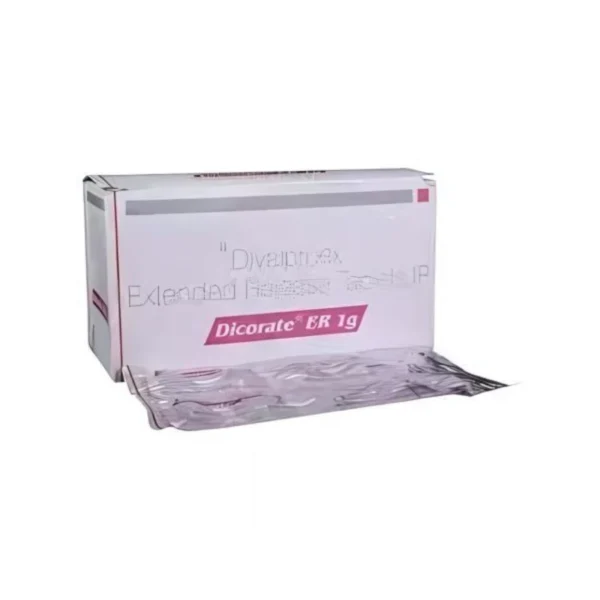
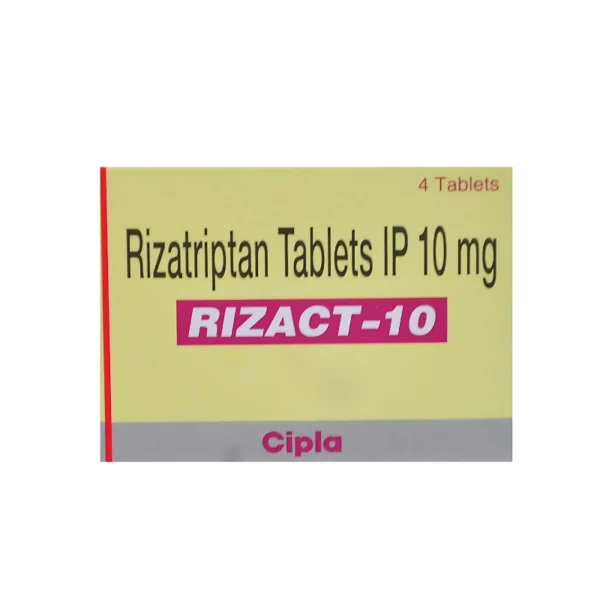
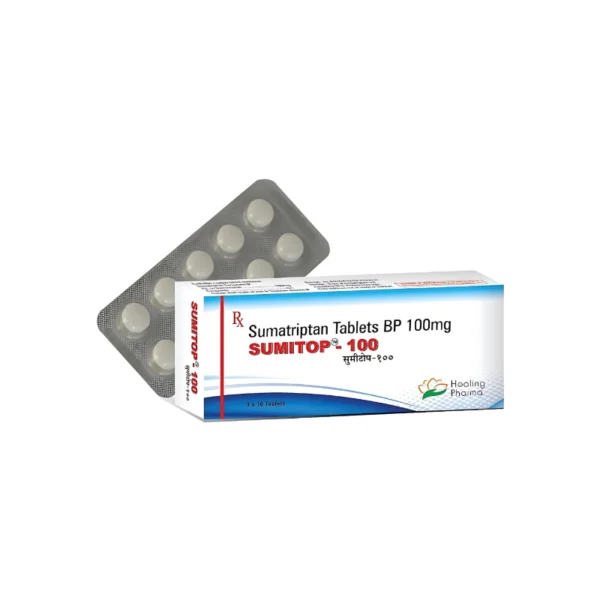
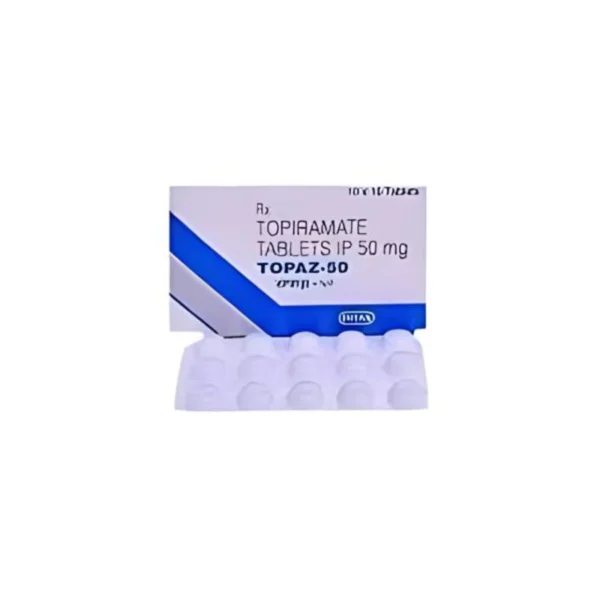
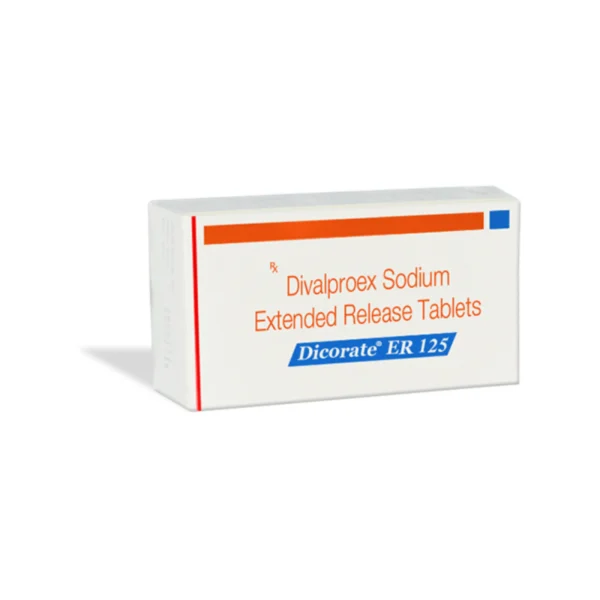
Reviews
There are no reviews yet.